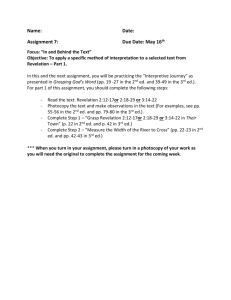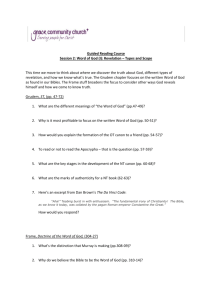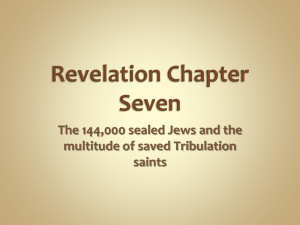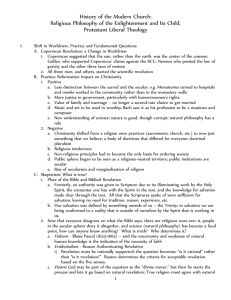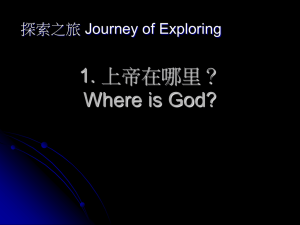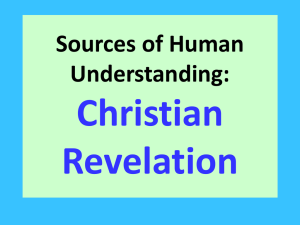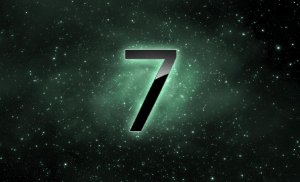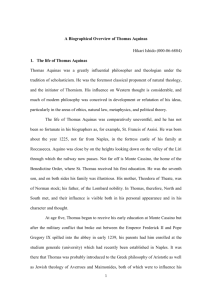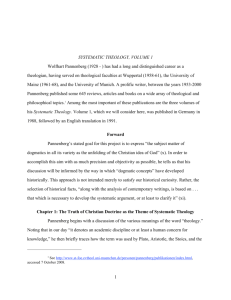Chapter 1: The Patristic Period, c
advertisement
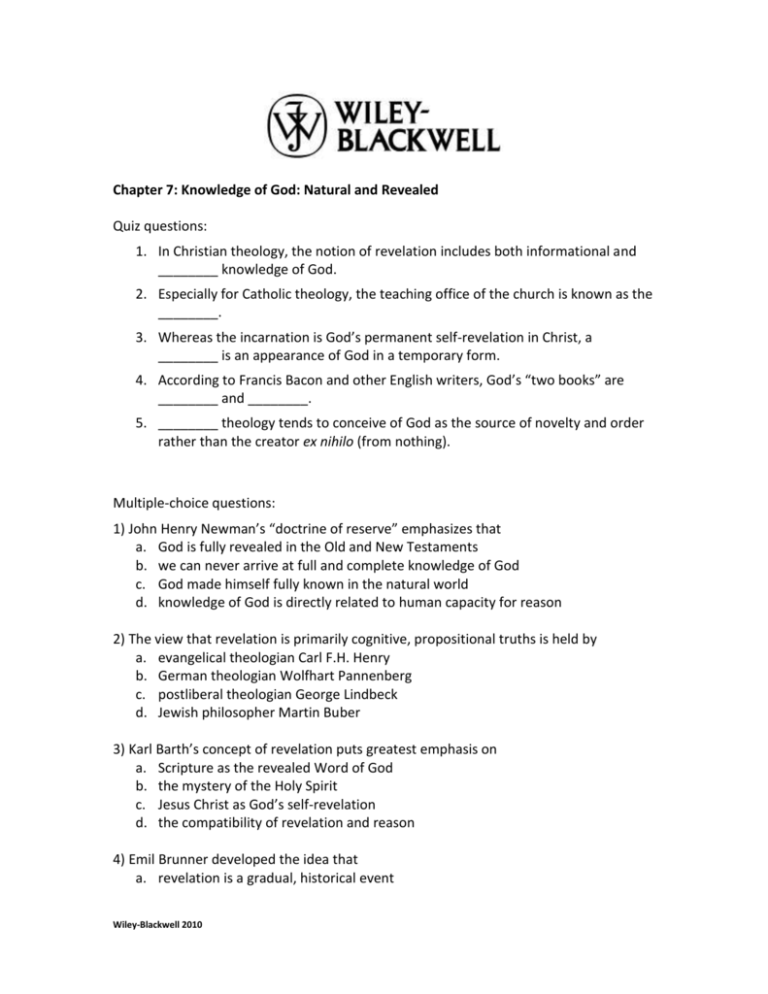
Chapter 7: Knowledge of God: Natural and Revealed Quiz questions: 1. In Christian theology, the notion of revelation includes both informational and ________ knowledge of God. 2. Especially for Catholic theology, the teaching office of the church is known as the ________. 3. Whereas the incarnation is God’s permanent self-revelation in Christ, a ________ is an appearance of God in a temporary form. 4. According to Francis Bacon and other English writers, God’s “two books” are ________ and ________. 5. ________ theology tends to conceive of God as the source of novelty and order rather than the creator ex nihilo (from nothing). Multiple-choice questions: 1) John Henry Newman’s “doctrine of reserve” emphasizes that a. God is fully revealed in the Old and New Testaments b. we can never arrive at full and complete knowledge of God c. God made himself fully known in the natural world d. knowledge of God is directly related to human capacity for reason 2) The view that revelation is primarily cognitive, propositional truths is held by a. evangelical theologian Carl F.H. Henry b. German theologian Wolfhart Pannenberg c. postliberal theologian George Lindbeck d. Jewish philosopher Martin Buber 3) Karl Barth’s concept of revelation puts greatest emphasis on a. Scripture as the revealed Word of God b. the mystery of the Holy Spirit c. Jesus Christ as God’s self-revelation d. the compatibility of revelation and reason 4) Emil Brunner developed the idea that a. revelation is a gradual, historical event Wiley-Blackwell 2010 b. scientific discoveries are compatible with divine revelation c. revelation is primarily the establishment of relationship d. revelation occurs mainly through mystical religious experiences 5) F.D.E. Schleiermacher’s notion of revelation was influenced by a. Martin Buber b. Martin Luther c. Catholic teaching d. Moravian Pietism 6) The concept of revelation as public and universal events is associated with a. Ludwig Feuerbach b. Wolfhart Pannenberg c. Thomas Aquinas d. George Lindbeck 7) “The heavens declare the glory of God” was written a. in a biblical Psalm b. by Augustine c. in the Gospel of Mark d. by Thomas Aquinas 8) John Calvin’s writing on natural theology taught that a. the natural world is broken by sin and cannot teach us about God b. knowledge of God as redeemer is only available through revelation c. the natural world is sufficient for arriving at full knowledge of God d. nature and Scripture are equal and compatible sources of knowledge about God 9) The following thinker proposed that God can be known through reason because the height of creation is the human capacity to reason: a. Hans Urs von Balthasar b. Jonathan Edwards c. Augustine of Hippo d. Thomas Aquinas 10) For Hans Urs von Balthasar, a. we can deduce the existence of God because of the beauty of nature b. the sin and brokenness of the world is a serious obstacle to understanding God c. the orderliness of the world is evidence of God’s character d. God approaches humanity through the beauty of Christ 11) Karl Barth objected to natural theology because it a. undermines the necessity of revelation b. places Scripture and human reason on an equal footing Wiley-Blackwell 2010 c. contradicts the teachings of the Old Testament on creation d. fails to place enough emphasis on the doctrine of original sin 12) Alvin Plantinga objected to natural theology mainly because a. he thought it relied too heavily on secular philosophy b. he saw it as attempting to prove the existence of God c. he opposed the way it sought to show the parallels between the creation and the character of God d. he thought it opened the way to religious pluralism 13) In Barth and Brunner’s debate over natural theology, Barth rejected the concept of analogia entis, which refers to a. an essential continuity between God and creation b. the concept of original sin c. the unbridgeable gap between divine revelation and human reason d. spiritual experience of God 14) The theological movement that tends to emphasize the distinctiveness of theology and science is a. liberal theology b. process theology c. neo-orthodoxy d. conservative evangelicalism 15) The idea that theology and science are distinct because they ask fundamentally different questions is associated with a. Paul Tillich b. Wolfhart Pannenberg c. Langdon Gilkey d. Emil Brunner Wiley-Blackwell 2010
